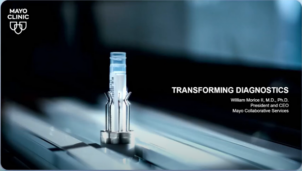New technologies and delivery models will allow labs to interact more directly with patients, clinicians, and researchers.
Labs play a crucial role in healthcare systems across Asia, but they often remain in the background. Patients are unlikely to interact directly with them or even know what they do. Clinicians take the lead in ordering tests and interpreting results, but don’t always leverage the expertise of lab professionals when making clinical decisions.
Yet as healthcare systems across Asia digitise, lab professionals have an exciting opportunity to play a greater role at every step of the patient journey, including at the frontlines of patient care.
Thinking outside the lab
Embracing this opportunity starts with a shift in mindset, according to Narongrid Galaputh, CEO of N Health Diagnostic Laboratories, the largest commercial lab operator in Thailand. “Many labs focus too much on internal processes and don’t see the big picture,” he says. “Operational efficiency is important, but the ultimate value of diagnostics should be measured by their benefit for patients.”
Galaputh believes that lab professionals need to think broadly about the entire patient experience when evaluating their operations. This means looking beyond what happens between the time a lab receives a sample and delivers a result. It requires taking greater responsibility for a variety of factors, such as how long it takes for the sample to get from the hospital to the lab, and whether doctors are interpreting the results correctly.
N Health, which started as the in-house lab at Bangkok Dusit Medical Services (BDMS) before being restructured as an independent subsidiary under Galaputh’s leadership, achieved its success by “thinking outside the lab” and taking a broader role in healthcare systems management. This allowed them to support BDMS, Thailand’s largest private healthcare group, and also to serve other hospital networks in the public and private sector in Thailand, Myanmar and Cambodia.
It also serves patients directly via a B2C business that allows them to make appointments online and come directly to the lab to get their tests. “We want our customers to ask questions and get engaged in what they check,” says Galaputh, noting that they also launched a mobile app to help deliver results and connect with their customers. “The ultimate goal is be closer to the frontlines of care.”
The lab as consultant
Labs also have a bigger role to play in driving clinical decisions. “Rather than just taking orders, labs should proactively make suggestions,” argues Dr Kee Yuan Ngiam, Group Chief Technology Officer at National University Health System (NUHS), a major public health cluster in Singapore. “They should help doctors decide what tests to order and when.”
This is particularly true amid the proliferation of new diagnostic technologies: “When lab professionals learn about new validated tests, it is important to communicate this to clinicians.” he says. “This way, the lab can reach out to inform and promote innovation in care processes.”
Dr Ngiam believes AI can support this process. His office, which oversees a broad portfolio of AI projects at NUHS, is working on an AI system to guide laboratory ordering. His aim is to build a tool that not only makes clinically valid suggestions, but also fits neatly into existing clinical workflows. The initial goal is to optimise costs and ensure that only necessary tests are performed, thus improving quality of care while cutting costs.
“As more tests get ordered, we have more data to power our models,” says Dr Ngiam. “We are particularly excited about AI for predictive pharmacogenomics, which has particularly high potential for value creation, but we expect AI will support many diagnostic decisions and interpretations in the near future.”
The internet of medical things
The digital transformation of Asian hospitals presents many other opportunities for lab processes to integrate with the IT platforms that increasingly power healthcare systems everywhere, according to Dr Hong Fung, CEO of the Chinese University of Hong Kong (CUHK) Medical Centre, a new non-profit private hospital under development in Hong Kong.
An experienced hospital with deep experience in health IT, Dr Fung wants CUHK Medical Centre to be a smart hospital from day one. Part of his plan is to build an “internet of medical things” that uses sensors to track usage of a wide variety of hospital equipment, from lab analysers to drip stands and everything in between.
“We want to use data to make sure that everything in the hospital works together seamlessly and efficiently,” says Dr Fung. “Labs can only achieve their full potential if we take them out of their silos and integrate them into upstream and downstream processes.”
From mobile apps to AI-powered decision support systems, Asia’s most forward-thinking labs are already adopting technologies that allow them to embed themselves more deeply into the digital fabric of care that is emerging all around us. This will allow them to position themselves closer to the frontlines of care and achieve greater impact at every stage of the patient journey.
Key takeaways
- Leading labs are looking beyond internal processes and taking a broader role in healthcare systems management.
- As new diagnostic technologies proliferate, lab professionals will increasingly consult on decisions about what to order and how to interpret results.
- Labs will increasingly be connected to an “internet of medical things” that will drive operational efficiencies by capturing granular data on equipment usage.







